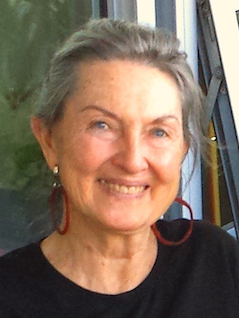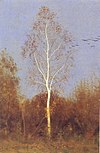Related Research Articles
Social constructivism is a sociological theory of knowledge according to which human development is socially situated and knowledge is constructed through interaction with others.

Composition studies is the professional field of writing, research, and instruction, focusing especially on writing at the college level in the United States.
Place-based education, sometimes called pedagogy of place, place-based learning, experiential education, community-based education, environmental education or more rarely, service learning, is an educational philosophy. The term was coined in the early 1990s by Laurie Lane-Zucker of The Orion Society and Dr. John Elder of Middlebury College. Orion's early work in the area of place-based education was funded by the Geraldine R. Dodge Foundation. Although educators have used its principles for some time, the approach was developed initially by The Orion Society, a Massachusetts-based nonprofit organization, as well as Professor David Sobel, Project Director at Antioch University New England.
Critical ethnography applies a critical theory based approach to ethnography. It focuses on the implicit values expressed within ethnographic studies and, therefore, on the unacknowledged biases that may result from such implicit values. It has been called critical theory in practice. In the spirit of critical theory, this approach seeks to determine symbolic mechanisms, to extract ideology from action, and to understand the cognition and behaviour of research subjects within historical, cultural, and social frameworks.
Gary A. Olson is a scholar of rhetoric and culture, a literary biographer, and president of Daemen College. He has served as provost and vice president for academic affairs at Idaho State University, dean of the College of Arts and Sciences at Illinois State University, and chief academic officer at the University of South Florida, St. Petersburg.

Ariel Salleh is an Australian sociologist who writes on humanity-nature relations, political ecology, social change movements, and ecofeminism.

First-year composition is an introductory core curriculum writing course in US colleges and universities. This course focuses on improving students' abilities to write in a university setting and introduces students to writing practices in the disciplines and professions. These courses are traditionally required of incoming students, thus the previous name, "Freshman Composition." Scholars working within the field of composition studies often have teaching first-year composition (FYC) courses as the practical focus of their scholarly work.
The ecopedagogy movement is an outgrowth of the theory and practice of critical pedagogy, a body of educational praxis influenced by the philosopher and educator Paulo Freire. Ecopedagogy's mission is to develop a robust appreciation for the collective potentials of humanity and to foster social justice throughout the world. It does so as part of a future-oriented, ecological and political vision that radically opposes the globalization of ideologies such as neoliberalism and imperialism, while also attempting to foment forms of critical ecoliteracy. Recently, there have been attempts to integrate critical eco-pedagogy, as defined by Greg Misiaszek with Modern Stoic philosophy to create Stoic eco-pedagogy.
Cognitive science and linguistic theory have played an important role in providing empirical research into the writing process and serving the teaching of composition. As for composition theories, there is some dispute concerning the appropriateness of tying these two schools of thought together into one theory of composition. However, their empirical basis for research and ties to the process theory of composition and cognitive science can be thought to warrant some connection.
The process theory of composition is a field of composition studies that focuses on writing as a process rather than a product. Based on Janet Emig's breakdown of the writing process, the process is centered on the idea that students determine the content of the course by exploring the craft of writing using their own interests, language, techniques, voice, and freedom, and where students learn what people respond to and what they don't. Classroom activities often include peer work where students themselves are teaching, reviewing, brainstorming, and editing.
Feminist theory in composition studies examines how gender, language, and cultural studies affect the teaching and practice of writing. It challenges the traditional assumptions and methods of composition studies and proposes alternative approaches that are informed by feminist perspectives. Feminist theory in composition studies covers a range of topics, such as the history and development of women’s writing, the role of gender in rhetorical situations, the representation and identity of writers, and the pedagogical implications of feminist theory for writing instruction. Feminist theory in composition studies also explores how writing can be used as a tool for empowerment, resistance, and social change. Feminist theory in composition studies emerged in the late 1960s and early 1970s as a response to the male-dominated field of composition and rhetoric. It has been influenced by various feminist movements and disciplines, such as second-wave feminism, poststructuralism, psychoanalysis, critical race theory, and queer theory. Feminist theory in composition studies has contributed to the revision of traditional rhetorical concepts, the recognition of diverse voices and genres, the promotion of collaborative and ethical communication, and the integration of personal and political issues in writing.

Adams Sherman Hill was an American newspaper journalist and rhetorician. As Boylston Professor of Rhetoric at Harvard University from 1876 to 1904, Hill oversaw and implemented curriculum that came to effect first-year composition in classrooms across the United States. His most widely known works include The Principles of Rhetoric, Foundations of Rhetoric, and Our English.
Greta Gaard is an ecofeminist writer, scholar, activist, and documentary filmmaker. Gaard's academic work in the realms of ecocriticism and ecocomposition is widely cited by scholars in the disciplines of composition and literary criticism. Her theoretical work extending ecofeminist thought into queer theory, queer ecology, vegetarianism, and animal liberation has been influential within women's studies. A cofounder of the Minnesota Green Party, Gaard documented the transition of the U.S. Green movement into the Green Party of the United States in her book, Ecological Politics. She is currently a professor of English at University of Wisconsin-River Falls and a community faculty member in Women's Studies at Metropolitan State University, Twin Cities.
Agricultural literacy is a phrase being used by several universities to describe programs to promote the understanding and knowledge necessary to synthesize, analyze, and communicate basic information about agriculture with students, producers, consumers, and the public. These programs focus on assisting educators and others to effectively incorporate information about agriculture into subjects being taught or examined in public and private forums and to better understand the impact of agriculture on society.
Efforts to teach writing in the United States at a national scale using methods other than direct teacher-student tutorial were first implemented in the 19th century. The positive association between students' development of the ability to use writing to refine and synthesize their thinking and their performance in other disciplines is well-documented.
Theories of rhetoric and composition pedagogy encompass a wide range of interdisciplinary fields centered on the instruction of writing. Noteworthy to the discipline is the influence of classical Ancient Greece and its treatment of rhetoric as a persuasive tool. Derived from the Greek work for public speaking, rhetoric's original concern dealt primarily with the spoken word. In the treatise Rhetoric, Aristotle identifies five Canons of the field of rhetoric: invention, arrangement, style, memory, and delivery. Since its inception in the spoken word, theories of rhetoric and composition have focused primarily on writing
Feminist pedagogy is a pedagogical framework grounded in feminist theory. It embraces a set of epistemological theories, teaching strategies, approaches to content, classroom practices, and teacher-student relationships. Feminist pedagogy, along with other kinds of progressive and critical pedagogy, considers knowledge to be socially constructed.
Collaborative pedagogy stems from the process theory of rhetoric and composition. Collaborative pedagogy believes that students will better engage with writing, critical thinking, and revision if they engage with others. Collaborative pedagogy pushes back against the Current-Traditional model of writing, as well as other earlier theories explaining rhetoric and composition; earlier theories of writing, especially current-traditional, emphasizes writing as a final product. In contrast, collaborative pedagogy rejects the notion that students think, learn, and write in isolation. Collaborative pedagogy strives to maximize critical thinking, learning, and writing skills through interaction and interpersonal engagement. Collaborative pedagogy also connects to the broader theory of collaborative learning, which encompasses other disciplines including, but not limited to, education, psychology, and sociology.
Sondra Perl is a Professor Emerita of English at Lehman College and director of the Ph.D. in Composition and Rhetoric at the Graduate Center of the City University of New York. She is the founder and former director of the New York City Writing Project. She writes about the composing process as well as pedagogical approaches to implementing composition theories into writing practices in the classroom.
Jeffrey Berman is a literary scholar, author, and editor. He is a Distinguished Teaching Professor of English at the University at Albany, SUNY, He is the author or co-author of over twenty books and one hundred and fifty articles, book chapters, and reviews, including Dying to Teach: A Memoir of Love, Loss, and Learning, and Cutting and the Pedagogy of Self-Disclosure. His research interests include literature and psychoanalysis, trauma theory, love and loss, death education, and self-disclosure pedagogy.
References
- ↑ Jones, Madison (August 23, 2018). "Writing Conditions: The Premises of Ecocomposition". Enculturation: A Journal of Rhetoric, Writing, and Culture. 26.
- Coe, R. (1975). "Eco-Logic for the composition classroom." College Composition and Communication 26.3: 232–237.
- Cooper, M. (1986). "The Ecology of writing." College English 48: 364–375.
- Dewey, J. (1915). Democracy and education. New York: Free Press.
- Dobrin, S. and C. Weisser. (2002). Natural discourse. Albany; SUNY Press.
- Gaard, G. (2001). "Ecofeminism and Ecocomposition." In S. Dobrin and C. Weisser, Eds. Ecocomposition: Theoretical and pedagogical approaches. Albany: SUNY Press.
- Jones, M (2018). "Writing Conditions: The Premises of Ecocomposition". Enculturation: a journal of rhetoric, writing, and culture. 26.
- Jones, P. (2008). "About this Blog." Read This or Else
- Long, M. (2001). "Education and environmental literacy: Reflections on teaching ecocomposition in Keene State College's environmental house." In S. Dobrin and C. Weisser, Eds. Ecocomposition: Theoretical and pedagogical approaches. Albany: SUNY Press.
- Reynolds, N. (2004). Geographies of writing: Inhabiting places and encountering difference. Carbondale, IL: Southern Illinois University Press.
- Sobel, D. (2004). Place-based education. Great Barrington, MA: Orion Society Press.
- Syverson, M. (1999). The Wealth of reality: An ecology of composition. Carbondale, IL: SIU Press.
- Weisser, C. and S. Dobrin, Eds. (2001) Ecocomposition: Theoretical and pedagogical approaches. Albany: SUNY Press.
- Yagelski, R. (2002). "Computers, Literacy, and Being: Teaching With Technology for a Sustainable Future."
